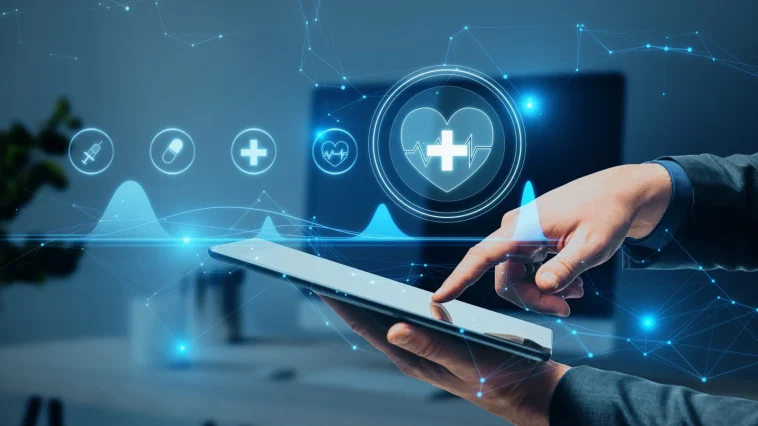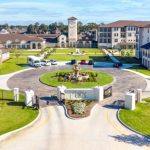Source: hurix.com
Key Takeaways:
Traditional medical training models are inadequate for the evolving challenges in healthcare.
Continuous learning and adaptability are essential in modern medical education.
Online simulations, VR, and AR significantly enhance medical training outcomes.
Digital technology allows for accessible, personalized, and asynchronous learning opportunities.
Interactive learning through gamification and simulations improves engagement and retention.
Personalized curriculum paths ensure education is relevant to individual strengths and weaknesses.
Real-time feedback mechanisms enhance learning efficiency and foster continuous improvement.
Case studies show significant improvements in patient care through innovative training programs.
Cultural competence training is vital for addressing diverse patient needs and improving health outcomes.
The future of healthcare education will likely leverage AI for personalized learning experiences.
Embracing Change: The Future of Medical Training
Source: medconnect-international.com
Why Traditional Models Are No Longer Enough
As the medical field evolves at an unprecedented pace, traditional training models are increasingly showing their limitations. The conventional approaches to medical education often reliant on rote memorization, static textbooks, and limited clinical exposure fail to prepare healthcare professionals for the dynamic and multifaceted challenges they encounter in real-world settings.
In an era where new diseases emerge, existing treatments evolve, and technological advancements reshape healthcare delivery, a rigid educational framework undermines the effectiveness of patient care and professional competency. Moreover, many traditional training programs struggle to keep pace with the rapid advancements technology brings to healthcare, including telemedicine, digital health records, and artificial intelligence.
Continuous learning and adaptability are key; hence, there is an urgent need for medical training programs that integrate flexibility, accessibility, and innovation.
Innovative Approaches: What the Data Tells Us
Data reveals a stark transformation in how medical professionals acquire knowledge and skills. A study conducted by the Association of American Medical Colleges (AAMC) indicated that healthcare providers are increasingly seeking lifelong learning opportunities outside of traditional environments.
Platforms utilizing online simulations, virtual reality (VR), and augmented reality (AR) provide practical training experiences that significantly enhance learning outcomes. These methodologies allow healthcare workers to refine their decision-making skills and technical abilities without the high stakes and pressures of a real clinical setting.
As healthcare continues to embrace a culture of continuous improvement, data-driven insights underscore the importance of adaptable learning modalities that can respond to the evolving needs of both practitioners and patients.
Mapping the Journey: Training in the Digital Age
Source: rootquotient.com
Digital technology is reshaping the landscape of medical education, creating opportunities for accessible and asynchronous learning. The rise of online courses, mobile applications, and learning management systems has revolutionized how medical professionals engage with educational content.
Today, learners can access a wealth of resources from around the globe, enabling them to tailor their educational journeys according to individual career paths and specialties. Moreover, the integration of big data analytics within training platforms helps educators track progress, identify knowledge gaps, and personalize learning experiences.
By leveraging algorithms that adapt to individuals’ skills and preferences, healthcare training platforms facilitate a more effective and engaging educational model, ensuring professionals are well-prepared to navigate the complexities of modern medicine.
Unlocking Potential: Key Features of Healthcare Training Platforms
Interactive Learning: Engaging Through Technology
One of the hallmark features of contemporary healthcare training platforms is their emphasis on interactive learning. By utilizing technologies such as gamification and immersive simulations, these platforms can create an engaging environment that captivates learners and enhances retention.
For instance, serious games designed for skill acquisition allow practitioners to experiment with various clinical scenarios in a risk-free context, thus building confidence and competence. Additionally, the use of VR allows for 360-degree simulations of surgical procedures or emergency response situations, helping trainees to visualize and practice their skills before encountering real patients.
This not only reduces anxiety during actual procedures but also promotes teamwork and communication among medical staff skills that are crucial for effective patient care.
Personalized Curriculum: Catering to Individual Needs
Source: cpduk.co.uk
Luckily, when it comes to education, a universal approach is not necessarily the best strategy. Every medical professional comes with unique backgrounds, strengths, and areas for improvement. Modern healthcare training platforms recognize this by incorporating personalized curriculum features that cater to individual learning needs.
These platforms typically begin with comprehensive assessments to gauge a learner’s existing knowledge and skills. Subsequently, they develop tailored learning paths that allow professionals to focus on areas needing improvement while accelerating through content they already understand.
Moreover, adaptive learning technologies continuously refine these personalized pathways based on ongoing assessments, ensuring that the education remains relevant to evolving medical practices and personal career aspirations.
Real-Time Feedback: The Critical Role of Assessment
Assessment in medical education must evolve alongside instructional methods. Real-time feedback loops are a pivotal feature within healthcare training platforms, promoting an immediate understanding of performance strengths and weaknesses.
This timely evaluation aids learners in adjusting their approaches, refining their techniques, and achieving better outcomes in patient-related scenarios. Innovative assessment tools, such as automated scoring mechanisms and peer reviews, provide rapid and comprehensive feedback, which enhances learning efficiency.
Moreover, analytics dashboards allow healthcare professionals to visualize their performance metrics over time, prompting self-reflection and fostering a culture of continuous improvement that extends beyond just formal education.
Success Stories: Transformative Outcomes from Leading Healthcare Institutions
Source: paterson-healthcare.co.uk
Case Study: How One Hospital Improved Patient Care
One prominent case study illustrating the transformative power of healthcare training platforms can be found at a leading hospital that recently adopted an advanced e-learning program tailored for critical care nurses.
By utilizing immersive simulations and scenario-based training modules, the institution reported a 25% reduction in medical errors related to IV placement and medication administration within six months of implementation. The program not only improved technical proficiencies but also promoted collaboration amongst the nursing staff, as they engaged in team-based simulations that mirrored real-life discussions and interventions.
This paradigm shift in training helped cultivate a culture of safety and accountability, ultimately fostering an environment where patient care standards soared.
Building Tomorrow’s Leaders: Training Programs That Deliver
Healthcare institutions around the globe recognize the importance of developing future leaders in the medical field. A prime example is a prestigious academic institution that revamped its residency training program to focus on leadership development and interprofessional collaboration.
By integrating modules that emphasize both business acumen and clinical expertise, the program produced graduates who are not only skilled clinicians but also adept in navigating healthcare systems and advocating for patient needs.
Alumni leading initiatives in healthcare policy and quality improvement underscore the transformative impact of programs that emphasize leadership training, demonstrating that cultivating leadership skills significantly enhances an organization’s overall effectiveness.
From Theory to Practice: Alumni Experiences in the Field
The real value of a comprehensive healthcare training platform becomes evident through the testimonials of its alumni. For instance, a recent graduate shared that the hands-on experience provided by virtual simulations was instrumental in her transition from theory to practice.
She recounted how engaging with realistic case studies and practical scenarios equipped her with the confidence to handle complex situations during her first weeks in a busy hospital environment.
Such experiences highlight the importance of integrating theoretical knowledge with practical application, preparing new healthcare professionals to enter the workforce ready to make substantial contributions to patient care and clinical teams.
Global Perspectives: How Healthcare Training is Evolving Worldwide
Source: biglanguage.com
International Standards: Balancing Quality and Accessibility
As healthcare training evolves globally, international standards become crucial in ensuring quality and accessibility. Various organizations, such as the World Health Organization (WHO) and the Global Health Workforce Alliance, advocate for the establishment of measurable benchmarks for training programs across countries.
These standards aim to harmonize educational approaches while recognizing unique national healthcare challenges. By fostering collaboration and resource sharing among global health institutions, there is potential to leverage best practices and innovative methodologies.
Such collaborations empower countries with fewer resources to implement effective healthcare training programs, ensuring that quality medical education is accessible to professionals worldwide.
Cultural Competence: Training for a Diverse Workforce
In an increasingly interconnected world, cultural competence has become an essential focus area within healthcare training. Platforms are being designed with modules that emphasize understanding and addressing the diverse cultural backgrounds of patients.
Training programs now include content on social determinants of health, implicit bias, and effective communication strategies for working with diverse populations. As healthcare professionals become more adept at navigating cultural sensitivities, the overall quality of patient care improves significantly.
In addition, cultural competence training encourages a more inclusive workforce that acknowledges and celebrates differences, contributing to better health outcomes and patient satisfaction across the board.
Future Trends: What’s Next for Global Healthcare Education?
Looking ahead, the evolution of healthcare training will likely be influenced by several emerging trends that respond to the changing landscape of medicine. Advances in artificial intelligence and machine learning will likely play a significant role in personalizing educational experiences even further. With the development of AI-enabled virtual instructors, learners may receive tailored guidance and model-based feedback that address their unique learning paces and styles.
Furthermore, as telehealth becomes more prevalent, training platforms may be inclined to develop specific curricula focusing on remote patient engagement and digital health technologies. This evolution signifies a proactive approach to anticipating the future needs of the healthcare workforce, ensuring that education remains relevant and comprehensive in the face of rapid change.





GIPHY App Key not set. Please check settings